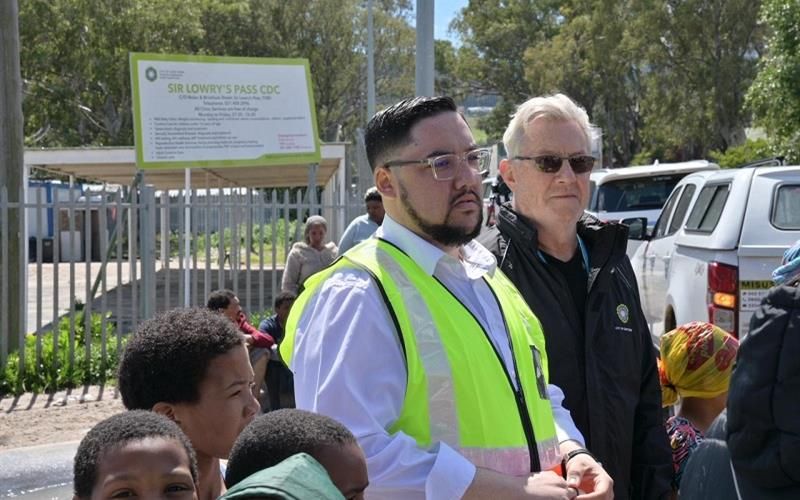Efforts to Support Affected Communities
The exceptional storm that caused significant damage in Cape Town and the Western and Eastern Cape over the weekend has left a profound effect on the city’s most vulnerable inhabitants. City disaster risk management and frontline service teams have been working nonstop to provide aid and assistance to those impacted, particularly in informal settlements, where the destruction is most severe.
Councillor Carl Pophaim, the City’s Mayoral Committee Member for Human Settlements, released an official statement highlighting the numerous efforts made by various city teams to address the urgent needs of those in the most affected areas. The councillor personally visited Klipheuwel, Philippi, Sir Lowry’s Pass Village, and Khayelitsha to evaluate the damage and the support provided.
Teams from human settlements, basic services, disaster risk management, safety, and security have been working continuously to assist residents. They have provided milling material, relocation services, and emergency flood kits where possible. In areas with high safety risks and slow water evaporation due to soil conditions, the City is exploring options for draining water. Comprehensive evaluations are in progress to determine which households need assistance.
Calling for Greater Support and Resources
Councillor Pophaim has requested the South African Social Security Agency (SASSA), the primary relief authority, to accelerate its actions. He also urged the national government to allocate a larger budget for disaster relief and implement a more streamlined, decentralized relief process that allows the City to allocate resources more effectively.
The vulnerability and magnitude of informal settlements across Cape Town have increased dramatically since Covid-19 and the widespread unlawful occupation of land that took place during the pandemic. In the last financial year, the City used its entire informal settlement grant allocation, all while observing a concerning decrease in national government transfers. The situation has been worsened by the 186 new informal settlements created during Covid-19 and the subsequent national lockdown, with over 60% of them deemed high-risk due to their locations under power lines, in wetlands, retention ponds, and biodiversity protected areas.
The City’s Human Settlements Strategy is actively seeking innovative ways to address informality within the limitations of scarce resources and land, resulting in the development of a managed settlements approach. This approach prioritizes on-site upgrades for some of the newly established settlements. However, large-scale interventions necessitate national government funding and the release of national government land. Councillor Pophaim emphasizes the need for more significant partnerships and proactive solutions to address the enormous urban pressure Cape Town is facing.
Exploring Solutions and Collaborating with Stakeholders
Following the storm, the City is actively working to investigate all feasible options for effecting positive change and engaging with stakeholders. The councillor expressed his gratitude towards teams and communities for their tireless work in helping residents and supporting one another during this difficult time.
The extraordinary storm has exposed the challenges and vulnerabilities experienced by Cape Town’s informal settlements. As the city recovers, it is essential for local and national government entities, as well as other stakeholders, to collaborate in finding innovative solutions to address informality and provide much-needed relief to the most vulnerable residents.








